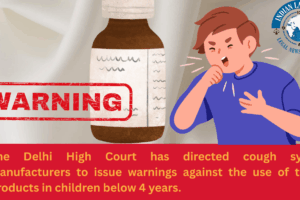
Emergency medical care- is it a fundamental right without many teeth? Medically popularly described as the “Golden Hour” in India, it is the crucial first hour after an accident/injury, which will immensely help the victims if they can be provided immediate medical care during this period. Chances of survival go up many times, if arrangements could be made and the patient could be transported to the nearest hospital to provide lifesaving treatment. The issue of emergency care in India has multiple dimensions- timely transportation, availability of beds, standard operating procedures for dealing with patients in need of emergency care, legal tangles, and the law to supervise it. A newspaper highlighted the Cardiac arrest revival needs to be done within four minutes, angioplasty in a heart attack must be conducted within 90 minutes, and a road traffic accident victim needs to be provided on-the-spot first-aid within 10 minutes. The seamless movement of the emergency vehicle to ensure the emergency care can reach the victim in time is in itself capable of defeating the victim’s fundamental right to life. The right to health and timely medical care is fundamental under Article 21 of the Constitution. However, are we getting timely medical care? For example, the December 16, 2012, rape victim was transferred from Munirka to Safdarjung Hospital — 6.2 km allegedly covered in 45 minutes, as per newspaper reports. The issue of emergency care in India, which is the subject of this article, is legally unaddressed, a fundamental right which needs more ground action for the people of India to feel the existence of right.
First Recognition of the Right to Emergency Care
Whether, as Indian citizens, we have any right to any emergency medical care, if yes, whether the authorities are doing enough to ensure that such right is not violated due to whims and fancies of the management of public or private hospitals is the big question. The right to emergency care of an individual is recognized worldwide—the Supreme Court of India in Pt—Parmanand Katara vs. Union of India and Or’s has held that denial of emergency medical care violates Article 21 of the Constitution of India. Hence, it is the fundamental right of the citizens to be provided with emergency medical care without any condition. However, would that cause a private hospital to open arms to someone without emergency care and without money? Is a question still considered a fundamental right to emergency care? Since 1989, when this judgment was passed, during the pandemic itself, Private Hospitals refused to treat non-COVID-19 patients by mandating a COVID-19 negative certificate.
The Hon’ble Apex court in the Pt. Parmanand judgment has held that it is the Right of the Citizen and the State’s obligation to preserve life, and doctors at government hospitals are therefore required to provide medical assistance to preserve life. This judgement was the first initiative taken by the Supreme Court of India to protect the citizen’s rights as per Article 21. The quote from the judgment [LawFoyer, & LawFoyer. (2023). PT. PARMANAND KATARA VS UNION OF INDIA | LawFoyer. LawFoyer | a Daily Doze for Inquisitors.]
“Thus this landmark judgement stated that every doctor, whether at a government hospital or a private hospital or otherwise, has a professional obligation to protect life by giving immediate medical aid and treatment to the victims of road accidents. No law or state action can be used to evade or postpone the discharge of the primary obligation imposed on members of the medical profession. The Court directed that the verdict in this case be given due publicity by the national media, Doordarshan, and All India Radio, as well as through the High Courts and Sessions Judges.”
Paschim Banga Khet Mazdoor Samiti vs State of West Bengal, In this case, the Hon’ble Supreme Court has held that the preservation of human life is of utmost important because if timely medical care is not provided to the victim, it may cause his death or leave him permanently paralyzed, in such cases obtaining status-quo ante is impossible. Thus, when such unfortunate incidents occur, humans cannot repair them. The Supreme Court has held that denial of emergency medical care violates Article 21 of the Constitution of India. Hence, it is the fundamental right of the citizens to be provided with emergency medical care without any condition.
In 1992, Hakim Seikh, a farm labourer, fell from a train at Mathurapur station in West Bengal and sustained a head injury. After first aid in a primary health centre, he was denied admission for further treatment due to a lack of beds in 4 government medical colleges and two private hospitals. The order laid out comprehensive guidelines for proper documentation and protocols for referral/transfer of patients. If a patient is too sick to be transferred, he/she is to be kept on a trolley and even on the floor till she/he can be accommodated. To ease the pressure for emergency beds, the SC recommended that a Central Bed Bureau should be set up. The recommendations of the judgment are mentioned below:
-
Adequate facilities are available at the Primary Health Centres where the patient can be given immediate primary treatment so as to stabilize his condition;
-
Hospitals at the district level and Sub-Division level are upgraded so that serious case can be treated there.
-
Facilities for giving specialist treatment are increased and are available at the hospitals at District level and Sub-Division level having regard to the growing needs.
-
To ensure availability of bed in an emergency at State level hospitals there is a centralized communication system so that the patient can be sent immediately to the hospital where bed is available in respect of the treatment which is required.
-
Proper arrangement of ambulance is made for transport of a patient from the Primary Health Centre to the District hospital or Sub-Division hospital and from the district hospital or Sub Division hospital to the State hospital.
-
The ambulance is adequately provided with necessary equipment and medical personnel.
-
The Health Centers and the hospitals and the medical personnel attached to these Centers and hospitals are geared to deal with larger number of patients needing emergency treatment on account of higher risk of accidents on certain occasions and in certain seasons.
It is no doubt true that financial resources are needed for providing these facilities. But at the same time, it cannot be ignored that it is the constitutional obligation of the State to provide adequate medical services to the people. Whatever is necessary for this purpose must be done. In the context of the constitutional obligation to provide free legal aid to a poor accused this Court has held that the State cannot avoid its constitutional obligation in that regard on account of financial constraints. [See : Khatri (II) v. State of Bihar, 1981 (1) SCC 627 at p. 631].
The said observations would apply with equal, if not greater, force in the matter of discharge of constitutional obligation of the State to provide medical aid to preserve human life. In the matter of allocation of funds for medical services the said constitutional obligation of the State has to be kept in view. It is necessary that a time-bound plan for providing these services should be chalked out keeping in view the recommendations of the Committee as well as the requirements for ensuring availability of proper medical services in this regard as indicated by us and steps should be taken to implement the same. The State of West Bengal alone is a party to these proceedings. Other States, though not parties, should also take necessary steps in the light of the recommendations made by the Committee, the directions contained in the Memorandum of the Government of West Bengal dated August 22, 1995 and the further directions given herein. The Union of India is a party to these proceedings. Since it is the joint obligation of the Centre as well as the States to provide medical services it is expected that the Union of India would render the necessary assistance in the improvement of the medical services in the country on these lines.
Healthcare is a State Subject
By law, healthcare is the state’s responsibility. Medical emergencies, including road traffic injuries, constitute one of the significant causes of death in India. However, states have made uneven progress in improving hospital emergency services and providing a well-equipped fleet of ambulances. No law discusses the crucial subject of emergency care in India. A plethora of medical literature on the subject affirms that the ‘GOLDEN HOUR’ is the first hour in which ’emergency medical care’ is necessary, and most of the victims die if no such care is made available or provided soon. The goal of emergency medical care is to ‘stabilize’ the patient. Private practice will be more concerned with the finances of the patient approaching. Therefore, hospitals have no standard SOPs to follow to provide emergency care besides the one above. In contrast, in the absence of due care, victims are left to the whims and fancies of the system and failing to get proper treatment, they can knock on the court’s doors to be denied their fundamental rights after their loss only.
How does a Central Bed Bureau work?
The Supreme Court also recommended to the State that they form a Central Bed Bureau to ensure the availability of a bed in an emergency. This facility should be maintained at State-level hospitals, where a centralized communication system will be formed. This system will ensure that the patient can be referred immediately to the hospital equipped with a bed related to the treatment. If this is done, most of the deaths in India can be avoided since many of the victims die because of the non-availability of beds or denial of emergency medical care. So, there are two issues: unavailable beds and denial of emergency care.
A particular hospital may be unable to admit an emergency patient due to physical limitations. In such cases, the hospital concerned should contact the Central Bed Bureau immediately. The Bureau will communicate with other hospitals. It will then decide in which hospital an emergency moribund/severe patient will be admitted. In this way, it facilitates accommodating patients when there is a shortage of space and other resources. The Central Bed Bureau should be equipped with wireless or other communication facilities.
US System
The US has a law named EMTALA (Emergency et al. Act) by amending the Consolidated Omnibus Budget Reconciliation Act of 1985 (COBRA), also known as the anti-dumping law. This Act made it mandatory for hospitals to attend to such persons. The Act contains an entire scheme of screening, stabilizing, and rendering emergency treatment. It also deals with situations where the hospital is not sufficiently equipped to provide stabilization or emergency treatment. In that event, the hospital must transfer the person to another hospital that can take the patient. It cannot transfer unless the patient is stabilized. United States is one of the early adopters of emergency medicine (EM) as a speciality. In 1968, The American College of Emergency Physicians was formed. The University of Cincinnati, in 1970, started the first formal EM residency program in the United States. In India, Emergency Medicine gained recognition from the Medical Council of India in 2009. Formal instruction in emergency medicine began in Singapore on July 28, 1979. The Ministry of Health formally recognized emergency medicine 1984 as a distinct medical specialty.
What’s The Progress So Far?
- In India 1982, Gautam Sen, a Professor Emeritus of Surgery at Grant Medical College University of Mumbai, founded the Association for Trauma Care of India (ATCI). Dr. Sen has been instrumental in several pioneering efforts to bring change to healthcare delivery in the country. A few of his achievements include founding the Association for Trauma Care of India (ATCI). Under his guidance, ATCI pioneered some of the most innovative and successful emergency response systems in India like the Golden Hour Project-India’s first wireless -controlled Ambulance Service during the Congress Centenary Celebration in Mumbai in 1985.
- To improve emergency medical care in non-urban and rural communities- the Society of Emergency Medicine Board of India (SEMI) is having a mission of to improve emergency medical care in non-urban and rural communities.
- The Law Commission has made the draft bill based on the principles of the Consolidated Omnibus Budget Reconciliation Act of 1985 (COBRA). This report emphasized that the Emergency Medical Service (EMS) has to be legislated so that the patients can enforce their rights. This report recommended that the Parliament legislate this issue and make it an absolute duty of the healthcare institution, whether Public or Private, to provide emergency medical care. After that, more was needed by the Central Government or any of the State Governments to formulate a proper law based on the draft model provided by the 201st Law Commission Report.
- It is only the State of Gujarat which established the Gujarat Emergency Medical Services Authority (GEMSA) in the year 2007. This regulation fundamentally makes provision for establishing a statewide system for emergency medical care and further brings NGOs and other private agencies together to work to provide emergency medical services.
- The Consumer Protection Act of 1986 included even doctors, though it is the doctor’s right to treat the patients he wants to, it is his moral duty to provide emergency medical care to the person in urgent need of it. In the case of Indian Medical Association vs. V. P. Shanta, the Supreme Court of India finally decided this issue. It held that the patients who avail medical care are included under the definition of the “Consumer”, and healthcare is defined as “Service” as per the Consumer Protection Act.

There is no specific law which governs this aspect of the Constitutional Rights. This is a serious concern that came to again for necessary action during COVID-19 pandemic. Emergency care with no strings attached should be delivered to its people.
Right to emergency medical services what are the concerns:
-
Medical care is an out-of-pocket expense what is the meaning of the right for those who are facing grave medical situation in front of private hospital.
-
What is the duty of the medical practitioner in case of patient requiring urgent medical attention with or without ability to pay?
-
Road traffic is a major obstacle in making the victim reach the hospital. What is the universal plan for dedicated lanes for ambulance in India. Last time this topic was touched while we were in pandemic.
-
Standard Operating procedure or law that dictates how the fundamental right is to be enforced by the citizen. What actions lie against the hospital for denial of the emergency medical care.
-
Is there a regular study conducted to find the gap in population demand for emergency care and the logistics support required for same. What is the performance of each state.
-
Role of the state and central government, NGOs and public and media at large.
-
Is there a central corpus to be created for emergency care in India
The patient’s family has fundamental right and Consumer Protection Act to be enforced when denied emergency care which may be too little and too late if it comes to rescue after personal loss.














Add Comment